In today’s #vatniksoup, I’ll introduce a Georgian politician &oligarch, Bidzina Ivanishvili. He’s best-known launching the pro-Kremlin Georgian Dream party, and for running the government from behind the scenes, slowly shifting Georgia’s course from the West back to Russia.
1/25
1/25
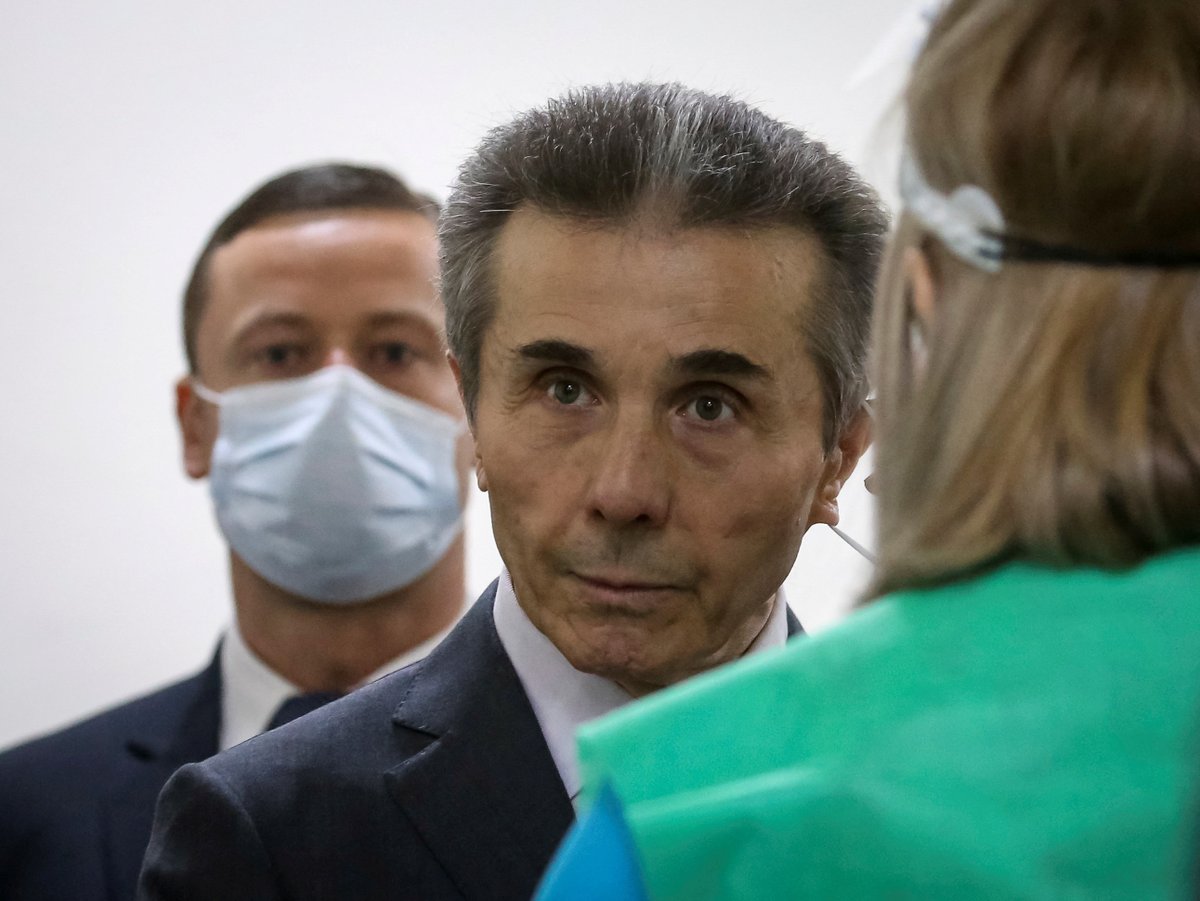
Ivanishvili was born and raised in a small village in Georgia. Their family was poor but he showed a business mindset from a young age. In 1988, he moved to Moscow and began his first business, importing and selling computers with Vitaly Malkin, a Russian-Israeli oligarch.
2/25
2/25

The rapid growth of Ivanishvili’s businesses can be attributed to his close ties with government officials. In 1996, he joined Seven Bankers (семибанкирщина), a group of influential Russian bankers who supported Boris Yeltsin’s re-election.
3/25
3/25

He financed Lebed, a presidential candidate designed to siphon votes from the communists and secure Yeltsin’s election. Lebed’s subsequent appointment as governor of Krasnoyarsk opened the door for Ivanishvili to engage in extremely shady business deals in that region.
4/25
4/25

Later Ivanishvili became a major shareholder of Gazprom, but claimed in a 2011 interview to have sold his entire stake at 100% profit. Nevertheless, in 2018, former Georgian President Saakashvili alleged that Ivanishvili still held a major stake there.
5/25


5/25


In 2002, Ivanishvili left Russia, first moving to France and then returning to Georgia. He maintained an extremely secretive profile until he entered politics in 2011. When he founded the Georgian Dream Party that year, few Georgians even knew what he looked like.
6/25
6/25
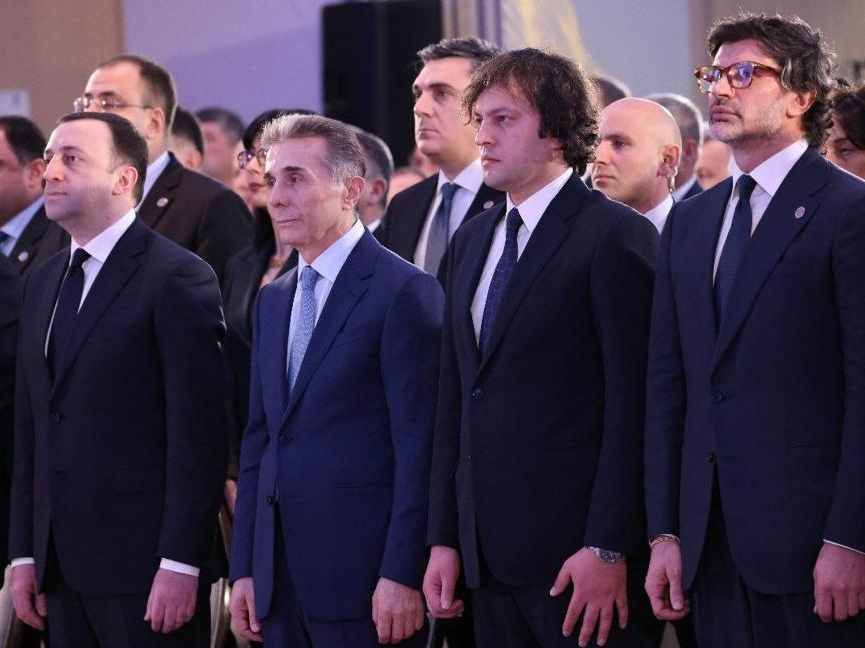
Despite avoiding public appearances, Ivanishvili’s team facilitated rumors of his philanthropy. He built the large Holy Trinity Orthodox church & provided monthly stipends to notable figures in sports and arts, leveraging their support later to propel his electoral victory.
7/25


7/25
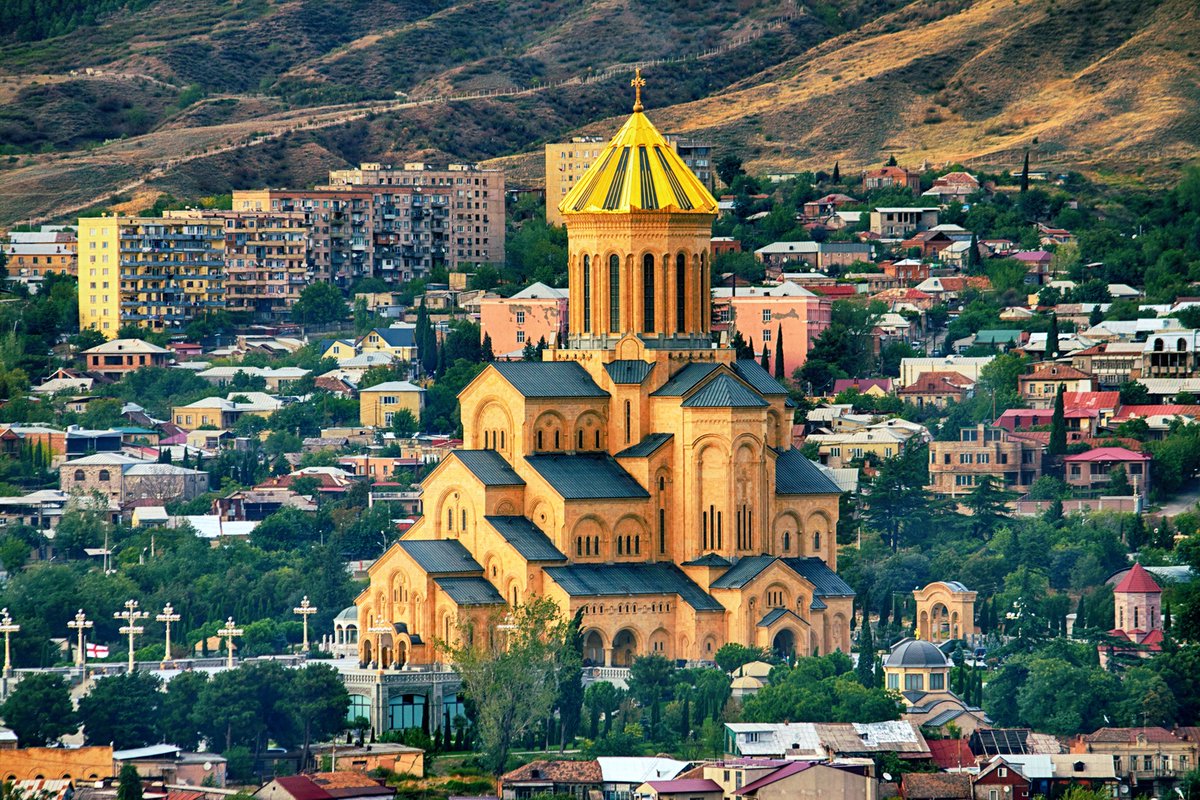

Ivanishvili entered politics in 2011 with an open letter criticizing Saakashvili’s "autocratic governance" and worsening relations with Russia. He promised to steer Georgia toward NATO and EU membership while stabilizing ties with Russia and boosting the economy.
8/25


8/25
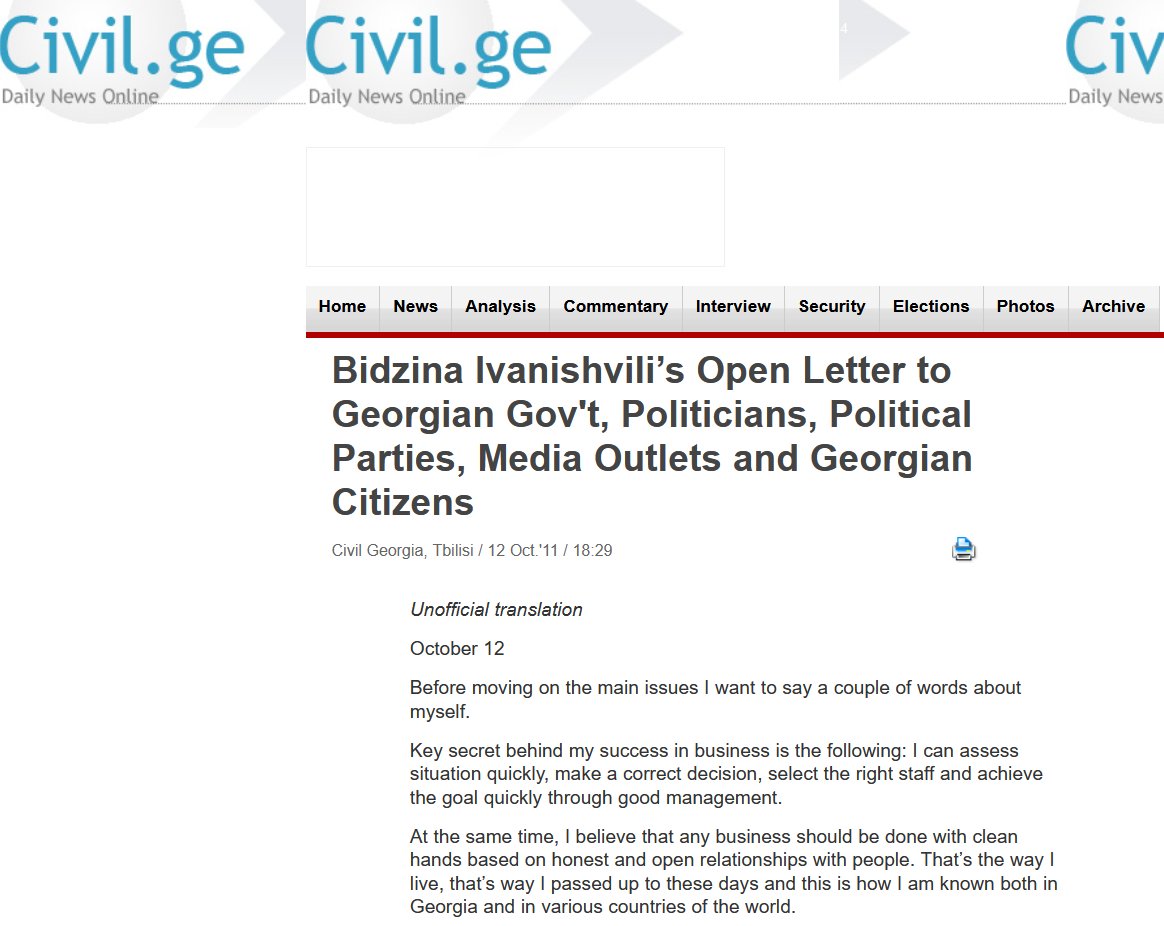

Ivanishvili and his team made promises that now seem outlandish, such as investing $1 billion in agriculture, and each of Georgia’s 6,000+ villages getting 5 million USD. The latter promise was promoted by former Soviet actress, Sopiko Chiaureli.
9/25
9/25
Ivanishvili himself vowed to build a democracy that would "shock" the West and Europe, and to treat political opponents with dignity. This claim now seems the most absurd, given the numerous political opponents who have been arrested, persecuted, or physically assaulted.
10/25
10/25

Since taking power, Ivanishvili has pursued politically motivated persecution of his opponents. So far, he’s imprisoned several opposition members, including former President of Georgia, Mikheil Saakashvili and other ministers from his party.
11/25


11/25

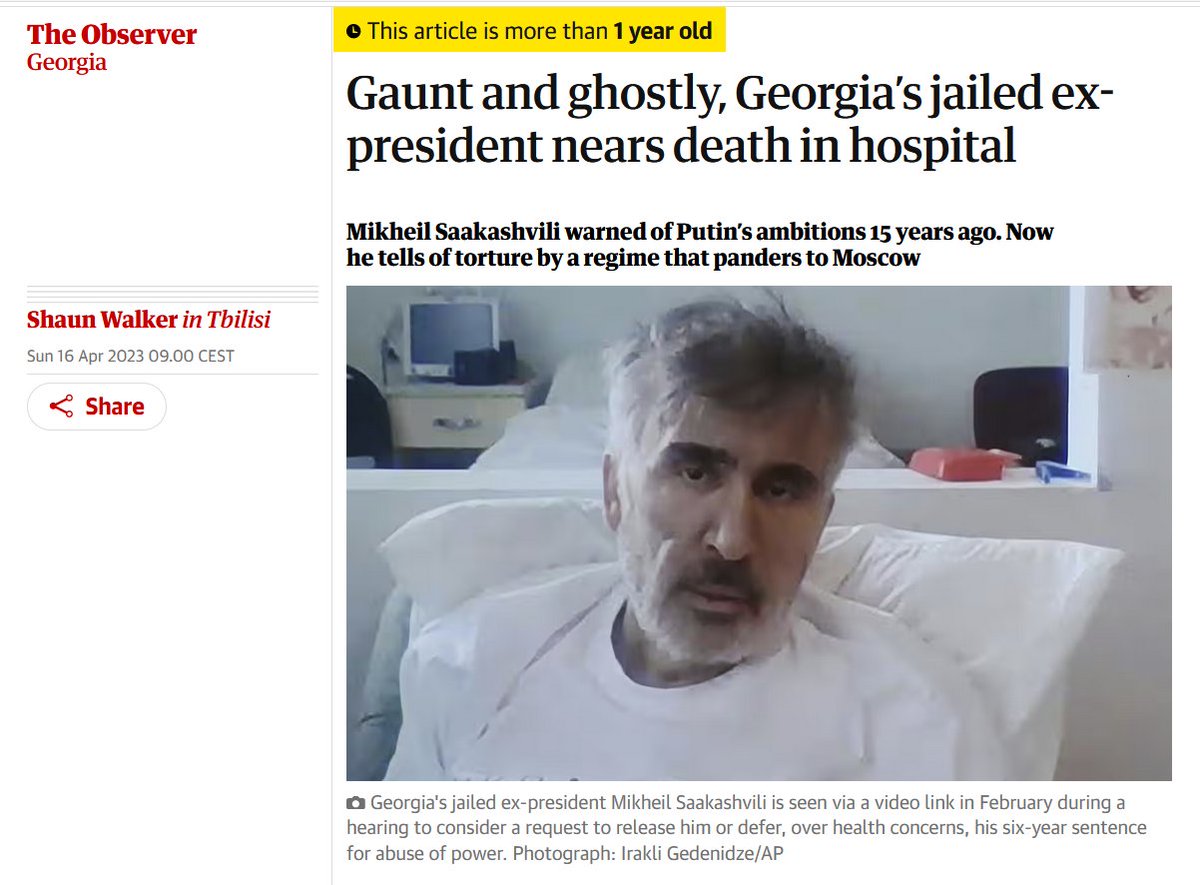
As is tradition, Ivanishvili took over Georgia’s largest media corporations, turning formerly critical media outlets into pro-government ones. Later he also arrested the former CEO of TV Broadcast, Nika Gvaramia.
12/25


12/25


In one of his interviews, Ivanishvili remarked that the worst thing to happen to Georgians was the opening of borders with EU countries. He explained that seeing how well Europeans lived made Georgians less content with their own lives and more desperate.
13/25
13/25

Ivanishvili formally left all political positions in 2013 but continues to be seen as the shadow ruler of Georgian politics. To this day, high-level officials regularly visit Ivanishvili in his "Glass Palace," located in the mountains overlooking Tbilisi.
14/25
14/25

All close to him got lucrative positions: his personal assistant became the Prime Minister, his chief bodyguard the Minister of Interior Affairs, and his second bodyguard took over the state protection. He even made his personal dentist the Minister of Healthcare.
15/25
15/25
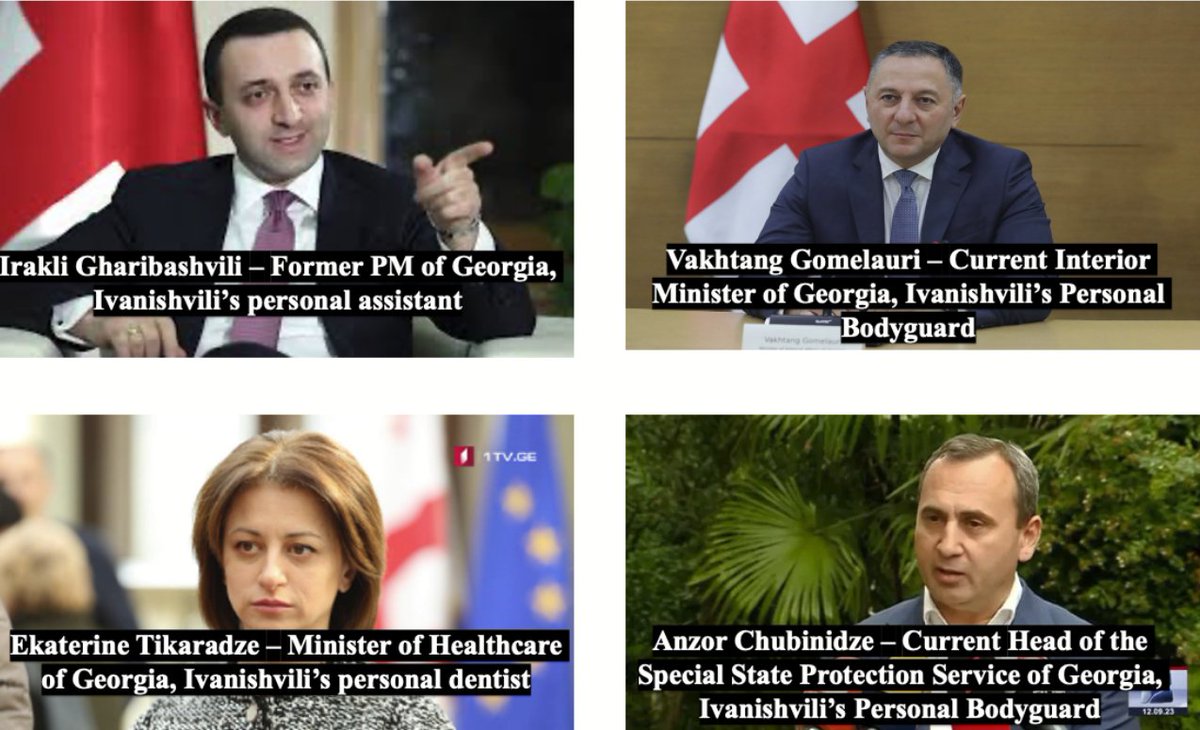
Throughout the years, Ivanishvili and his family faced multiple scandals, especially his rapper son Bera. A leaked audio captured Bera ordering the head of Special State Protection Service to intimidate teenagers who insulted him online.
16/25
16/25

Another leaked phone call audio emerged from March of 2022. When Russians were already killing Ukrainians in Bucha, Kherson and Mariupol, Bidzina Ivanishvili was talking with Russian oligarch Yevtushenkov discussing the ways to help him avoid sanctions.
17/25
17/25

Although there were always indications that Ivanishvili’s government leaned towards Russia rather than Europe, this became most evident when the Russian-Ukrainian war started. Ivanishvili’s government did not join sanctions against Russia and even blocked planes meant...
18/25
18/25

...to transport Georgian volunteers to fight for Ukraine. This stance led to protests on Georgia’s streets, prompting President Zelenskyy to label the Georgian government’s actions as shameful when addressing protesters in front of the parliament building of Georgia.
19/25



19/25



But the largest protests erupted when the government reintroduced the contentious "Russian Law," which labels NGOs and media organizations receiving Western funding as "Foreign Agents" — a term considered extremely derogatory in Georgia.
20/25
20/25
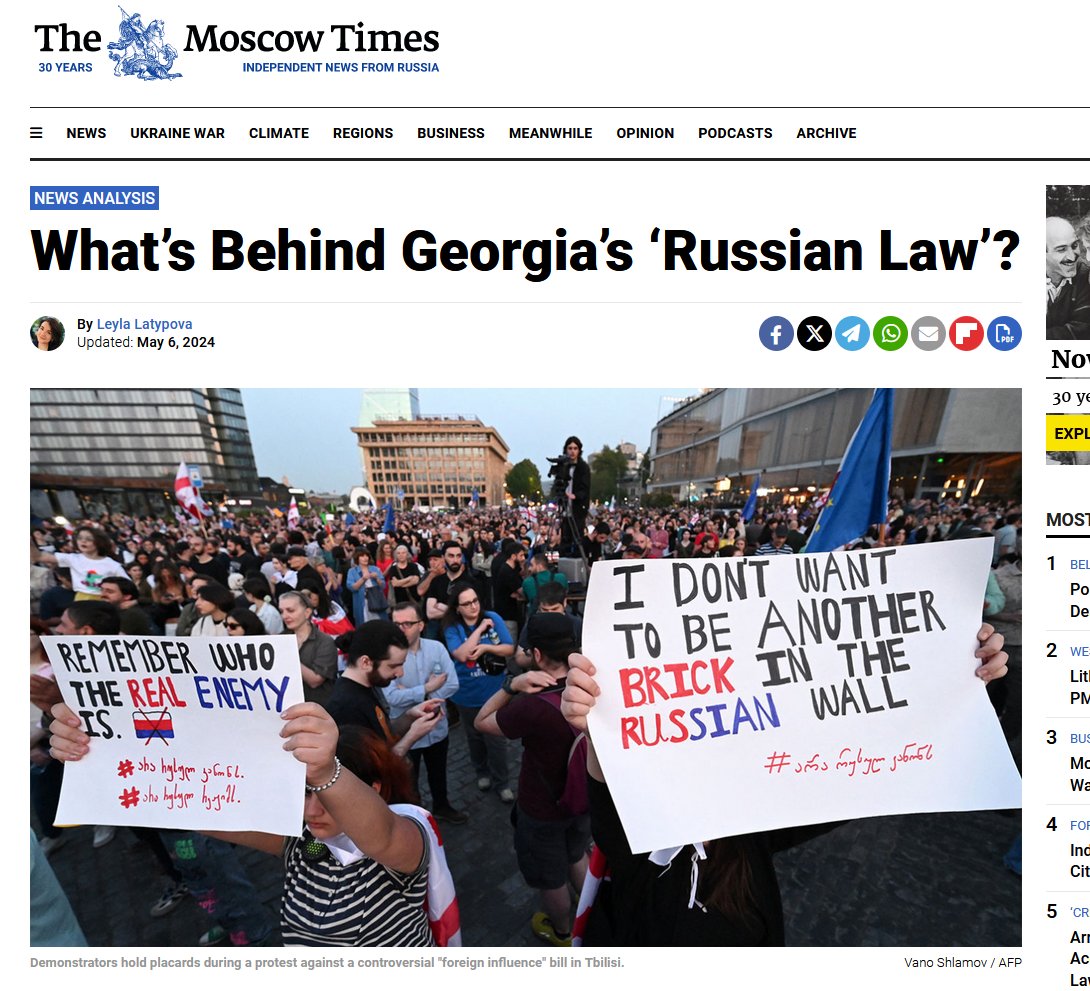
Hundreds of thousands took to the streets in opposition to the bill. Similar bill’s introduction in Russia led to the shutdown of numerous NGOs and TV channels, showcasing its potentially repressive impact. Essentially, it grants Ivanishvili’s government the power to...
21/25

21/25

...target and potentially shut down any NGO or media outlet that doesn’t align with their agenda. Alongside the controversial "Russian Law," Ivanishvili introduced the "Offshore Law," enabling the tax-free repatriation of his offshore wealth. Some have speculated that...
22/25
22/25

...Ivanishvili is preparing for potential western sanctions by consolidating his capital in Georgia, restricting NGOs’ access to Western funds, and becoming the primary funding source within the country. In his latest speech from Apr 2024, Ivanishvili publicly denounced...
23/25
23/25
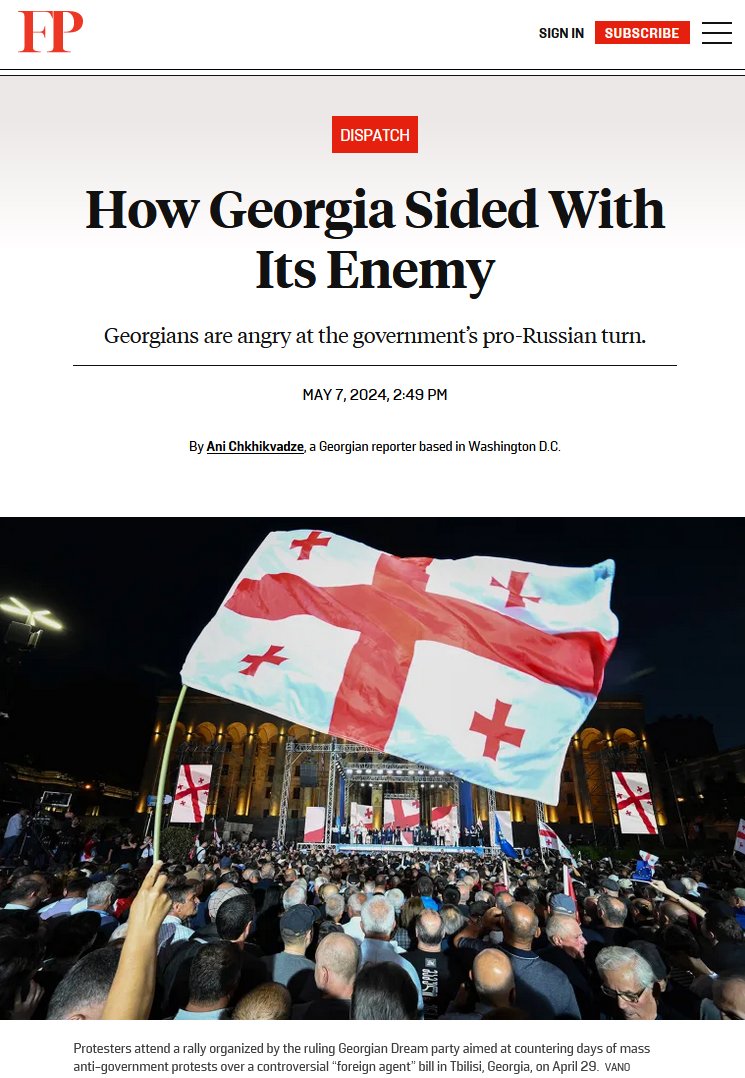
..the West as the "Global War Party," blaming it for deteriorating relations between Georgia, Ukraine, and Russia. He attributed the conflicts in Ukraine and Georgia’s 2008 war with Russia to Western actions, and also criticized the West for abandoning "traditional values".
24/25
24/25

For almost a month, Georgian youth have been protesting the reintroduction of this bill, viewing it as Bidzina Ivanishvili’s final step in cementing his rule as an ultimate dictator.
25/25


25/25
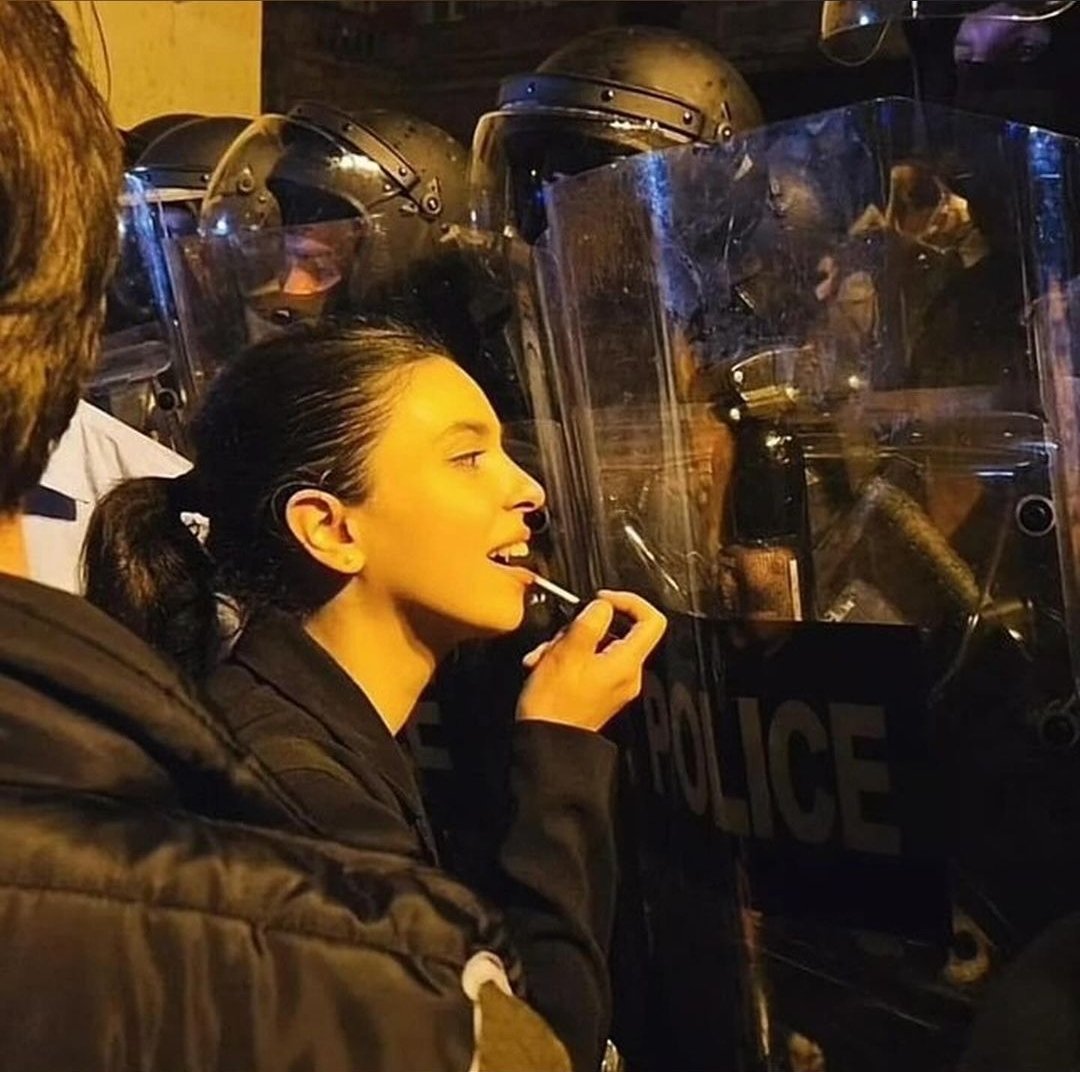

This soup was brewed in collaboration with @dachigubadze.
Find us also on other socials:
instagram.com/vatniksoup/
youtube.com/@TheSoupCentra…

Find us also on other socials:
instagram.com/vatniksoup/
youtube.com/@TheSoupCentra…

• • •
Missing some Tweet in this thread? You can try to
force a refresh

































